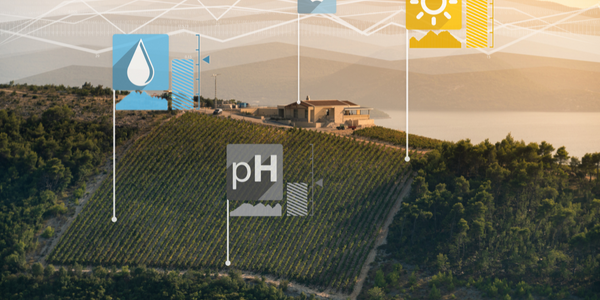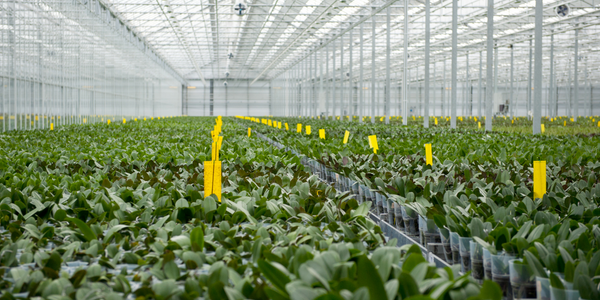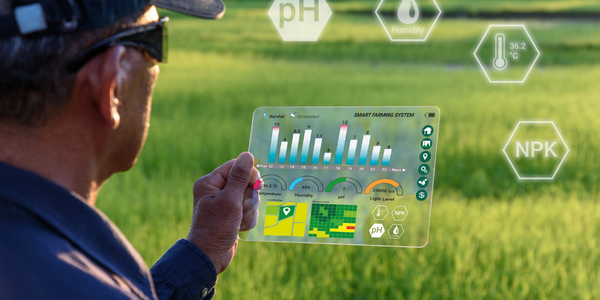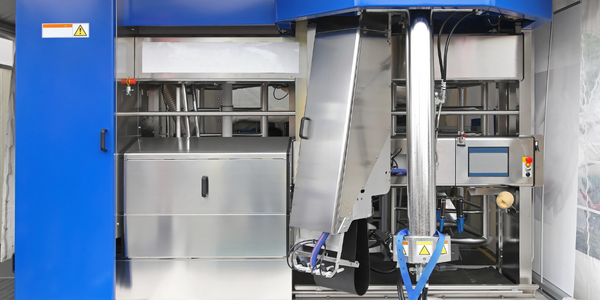SYSPRO Case Study: PEN Locks up Efficiencies with SYSPRO
公司规模
Large Corporate
地区
- America
国家
- United States
产品
- SYSPRO
技术栈
- Financials
- Material Requirements Planning
- B2B Trading
- Office Automation
- Screen Customization
实施规模
- Enterprise-wide Deployment
影响指标
- Cost Savings
- Digital Expertise
- Productivity Improvements
技术
- 功能应用 - 企业资源规划系统 (ERP)
- 功能应用 - 制造执行系统 (MES)
- 功能应用 - 产品数据管理系统
适用行业
- 农业
适用功能
- 商业运营
- 质量保证
- 仓库和库存管理
用例
- 库存管理
- 过程控制与优化
- 供应链可见性(SCV)
服务
- 系统集成
- 软件设计与工程服务
- 培训
关于客户
Prison Enterprises Network, better known as PEN Products, is a division of the Indiana Department of Correction, based in Indianapolis. This prison system has housed infamous individuals such as John Dillinger and Mike Tyson. PEN Products produces a variety of durable and non-durable goods in its facilities, many of which are used within the correctional facilities throughout Indiana, while others are marketed to the general public. This operation provides meaningful jobs for offenders and offsets the costs of maintaining the state’s prisons. PEN Products operates nine manufacturing sites and three farms, producing diverse products such as foodstuffs, license plates, clothing, beds, mattresses, dormitory and office furniture, concrete products, soaps, detergents, and outdoor equipment for Indiana state parks.
挑战
In 1995, PEN Products began evaluating its information requirements, recognizing the need to automate the dissemination of business information throughout its multifaceted manufacturing and farming operations. PEN realized the importance of implementing new procedures to meet the requirements of fiscal self-sufficiency. The real challenge at the time was to find one computer software package that could accommodate what were, in effect, about two dozen different businesses. Additional selection factors centered on having to operate within a governmental/correctional/business environment and the ability to compete in the marketplace with efficient, private sector product and service providers.
解决方案
A search was conducted, and the choice was SYSPRO enterprise software. A major reason for the selection was the software’s ability to fit a wide variety of accounting, distribution, and manufacturing applications. SYSPRO’s diverse range of over 40 modules offered each business unit the opportunity to implement a tailored software solution for greater control and management. As only limited resources were available, a time-phased implementation strategy was adopted to facilitate a smooth transition to the new computer technology. By 1997, SYSPRO software modules were being fully used in the areas of financial control, sales, purchasing, inventory, and shop floor production. All accounting and distribution software modules are installed at PEN Products’ central office in Indianapolis. Eleven manufacturing and farming operations throughout the state are online to the central database. While seven use dial-in lines, six sites, including the newest facility in Miami County, communicate via a dedicated LAN.
运营影响
数量效益

Case Study missing?
Start adding your own!
Register with your work email and create a new case study profile for your business.
相关案例.

Case Study
Intelligent Farming with ThingWorx Analytics
Z Farms was facing three challenges: costly irrigation systems with water as a limited resource, narrow optimal ranges of soil moisture for growth with difficult maintenance and farm operators could not simply turn on irrigation systems like a faucet.

Case Study
Greenhouse Intelligent Monitoring and Control Solution
Farming Orchids is the most successful form of precision farming in Taiwan, and also the most exported flower. Orchids need a specific temperature and humidity conditions to grow and bloom, and its flowering time may not be in line with market demands, so the price collapses when there is overproduction. Therefore, some farmers began to import automated greenhouse control systems for breeding and forcing, which not only improves quality, but also effectively controls the production period and yield to ensure revenue. In 2012, an orchid farmer built a Forcing Greenhouse of about 200 pings (approximately 661 Square Meters) in Tainan, Taiwan. The system integrator adopted Advantech’s APAX-5000 series programmable automation controllers to build the control platform, coupled with Advantech WebAccess HMI/SCADA software, to achieve cloud monitoring. The staff of the orchid field can monitor important data anytime via smart phone, iPad, and other handheld devices, and control the growth and flowering conditions. System requirements: In the past, most environmental control systems of orchid greenhouses in Taiwan used PLCs (Programmable Logic Controller) with poorscalability and control, and could not be connected to the Internet formonitoring from the cloud. For advanced database analysis and networking capability, the PC platform must be adopted. Therefore, PAC Systems (Programmable Automation Controller) with both PLC programming capabilities andPC functions is a better choice.The environmental control of the Orchid greenhouse switches on and off devices like fan, shade net, cooling/heat pump, liquid flow control, water-cooling wall etc. It is controlled by a control panel of electric controllers, and is driven by a motor, to adjust the greenhouse temperature, humidity, and other environmental conditions to the set parameters.

Case Study
Precision beekeeping with wireless temperature monitoring
Honeybees are insects of large economic value and provide a vital service to agriculture by pollinating a variety of crops. In addition, bees provide us with valuable products such as honey, beeswax, propolis, bee venom, etc. Monitoring of honeybee colony health, population, productivity, and environmental conditions affecting the colony health have always been exceedingly difficult tasks in apiculture. Research has shown that even small deviations (by more than 2°C) from the optimal temperatures have a significant influence on the development of the brood and the health of adult bees.

Case Study
Enabling Internet of Things Innovation in Agriculture
DigiBale, wanted to apply technology know-how and IP from implementations successfully to more agriculture sectors including cotton, forestry, sugarcane and cattle. However, farmers and growers still have worries about the connected technology.








